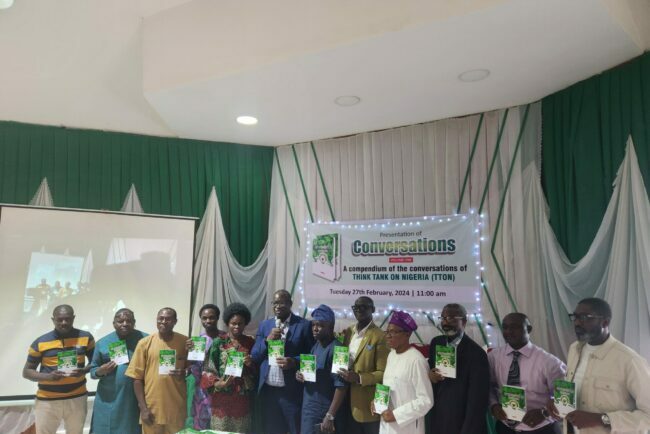A group of over 300 technocrats from different sectors under the aegis of Think Tank of Nigeria (TTON) has beseeched the Federal Government to reduce borrowing of loans to execute capital projects for Nigeria’s growth and development.
They gave this advice as part of their resolutions to solve the economic challenges facing the country.
The convener, Engr. Dideolu Falobi, who spoke on behalf of the group during the launch of an 85-page compendium of communique titled Conversations, decried the country’s high debt profile, saying that it is taking a toll on other sectors of the economy.
“The government should consider asset sales—divestment, equity, or outright sales—to raise capital for government projects. These projects should be self-sustaining; that is, they should be revenue-generating projects and unemployment opportunity-creation ventures.
“Projects that are self-sustaining should not be undertaken through loans; if you want to build a rail infrastructure, you don’t have to go for loans. There are people who are experts in investing in rails as equity.
“We will get it right and do our roadshows; those people will come in and bring the funding and run it for a period of time and take divestment away,” he stressed.
Commenting on the spiral devaluation of the naira, Falobi stressed that industrialization would help increase the country’s foreign reserve, advising the government to put an eye on the informal sector in a bid to increase the country’s gross domestic product (GDP).
“Industrialization is the bedrock of development; the way you can reserve foreign exchange is by engaging everybody. There is nothing more engaging than industrialization.
“Bringing the informal sector to the formal sector is able to tap into the potential and add to your gross domestic product, GDP, enhancing your abilities to communicate with other countries,” he said.
He urged the government to improve ways of generating revenue, saying it could adopt wealth, luxury, and property taxes used in European countries.
ALSO READ THESE TOP STORIES FROM NIGERIAN TRIBUNE
